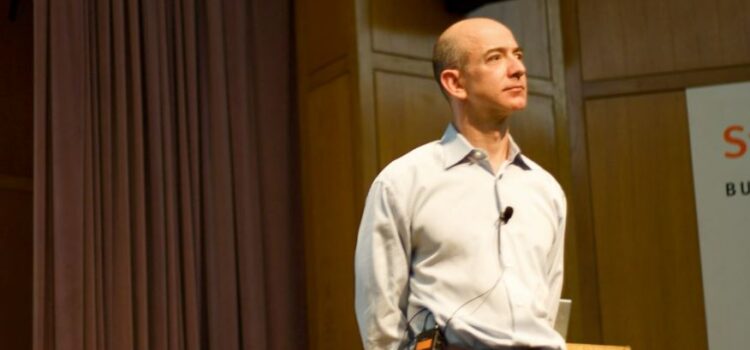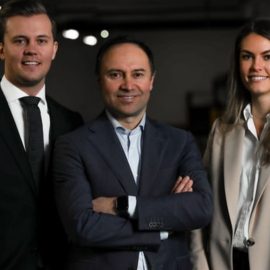
What’s Jeff Bezos’s leadership style? How does Amazon stay in the lead in the market?
To maintain Amazon’s market leadership, Bezos and the rest of his leadership team focus on the company’s success in the future, not on its current quarterly statements. Bezos explains his insistence on making decisions that pay out in the long run.
Check out how Bezos makes judgment calls to be the best leader for Amazon.
Taking the Long View
Jeff Bezos’s leadership style can be seen as early as Bezos’s first letter to shareholders in 1997. Back then, he warned investors that Amazon would often engage in practices that incurred short-term losses. The point was to quickly take a lead in the market, which could only be done by building Amazon’s brand, growing its number of repeat, loyal customers, and encouraging more and more sales through its site. He acknowledged that for purely technical reasons, online shopping in the ’90s was still frustrating, so Amazon made up for that by reducing prices and increasing its selection. Nevertheless, the company had to be careful when cutting prices to minimize its losses as it grew.
(Shortform note: In general, new businesses should expect to lose money for several years before becoming profitable. That doesn’t mean that the company’s founders or investors will lose money during that time. Business owners may pay themselves a salary as part of their company’s regular expenses, and investors may receive fixed interest payments on their investments as the company grows. Even successful companies don’t record profits for two or three years, although Bezos reports that Amazon took over five years to reach that goal.)
Bezos says that Amazon executives spend more time setting customer service goals than they do poring over financial reports, because creating value for customers results in greater business returns over the long haul. Short-term speculators don’t appreciate this mindset, but Bezos believes that good investors think like owners and should therefore be on the same wavelength regarding Amazon’s long-term ambitions.
(Shortform note: Bezos’s attitude toward long-term investors reflects the guiding philosophy of business mogul Warren Buffett. In The Essays of Warren Buffett, he drives home the idea that owning stock means owning a piece of a real-world business, which he advises holding on to and taking responsibility for so long as the business is well-operated and produces a steady rate of return. Buffett famously derides short-term traders who treat investments like gambling chips. Bezos, like Buffett, places value in investors who prioritize long-term business goals over short-term fluctuations in the market.)
Making Long-Term Decisions
The tricky part about planning ahead is that it’s impossible to predict the future, even with all the customer data and financial projections in the world. Therefore, Bezos admits that many long-term decisions boil down to judgment calls. When making a gamble—such as whether to experiment with a new service or build a new distribution center—Bezos uses the customers’ interest as his guiding star, assuming that if something Amazon does results in better deals for customers, it will eventually benefit Amazon too, even if the returns won’t be evident for years. Though some of these bets have been controversial—such as sharing website space with third-party vendors—Bezos’s judgment has paid off more often than not.
(Shortform note: In Blink, Malcolm Gladwell backs up Bezos’s assertion that intuitive judgments can be as strong as slow, deliberate, well-reasoned decisions. Gladwell explains that when using intuition, our minds perceive patterns based on snapshots of data while disregarding extraneous details. Intuition can be influenced by unconscious bias, but Gladwell argues that making good intuitive decisions is a skill you can improve through practice and learning to recognize when gut-based decisions are and aren’t appropriate. For Bezos, running a trillion-dollar business surely provides opportunities for both.)

———End of Preview———
Like what you just read? Read the rest of the world's best book summary and analysis of Jeff Bezos's "Invent and Wander" at Shortform.
Here's what you'll find in our full Invent and Wander summary:
- A compilation of Jeff Bezos’s letters to Amazon shareholders, interviews, and speeches
- How Amazon rose from a niche retailer to a digital superstore
- Bezos’s values and insights into innovation and success






